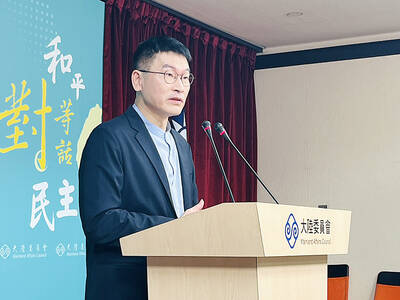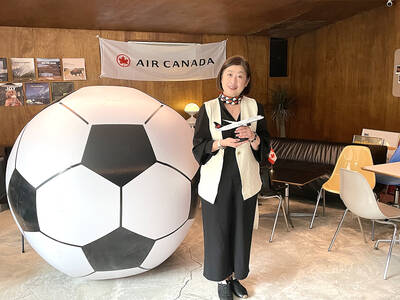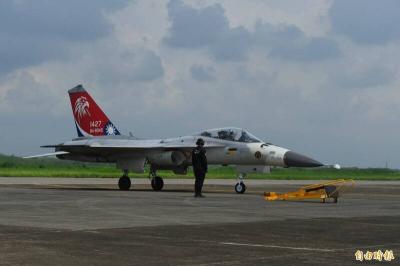The hourly pay of male workers in Taiwan last year averaged NT$361, while that of female workers was NT$304, a gap of 15.8 percent, the Ministry of Labor said on Tuesday as it announced Feb. 27 as equal pay day.
The wage difference means that women in Taiwan must work 58 days more to catch up with men in terms of annual earnings, the ministry said, citing data from the Directorate-General of Budget, Accounting and Statistics.
That is why equal pay day would be marked on Feb. 27, because it is the 58th day of the year, the ministry added.
The gap between men’s and women’s hourly wages fell from 14.9 percent in 2019 to 14.8 percent in 2020, before jumping to 15.8 percent last year, it said.
The ministry attributed the rise to a larger hourly pay increase of 4.6 percent received by men last year, compared with 3.3 percent given to women.
Over the past decade, women have received higher average annual pay hikes than men, except for last year, said Jasmine Mei (梅家瑗), head of the ministry’s Department of Statistics.
In the hospitality and restaurant sector, where women make up 56.3 percent of the workforce, employees received a 1.2 percent increase in hourly pay on average, due to a nationwide level 3 COVID-19 alert implemented last year, while in the male-dominated manufacturing sector, employees received a 5.5 percent rise in hourly pay thanks to booming foreign trade, Mei said.
The gender pay gap in the manufacturing sector also widened, as women employed in the electronics manufacturing industry received an hourly pay hike of 6.7 percent last year, lower than the 13.2 percent given to their male counterparts, she added.
However, the gender pay gap in Taiwan is still smaller than in several other countries.
Japan last year had a gender wage gap of 30.7 percent, South Korea’s was 30.4 percent and the US’ 16.9 percent, ministry data showed.

LOW RISK: Most nations do not extradite people accused of political crimes, and the UN says extradition can only happen if the act is a crime in both countries, an official said China yesterday issued wanted notices for two Taiwanese influencers, accusing them of committing “separatist acts” by criticizing Beijing, amid broadening concerns over China’s state-directed transnational repression. The Quanzhou Public Security Bureau in a notice posted online said police are offering a reward of up to 25,000 yuan (US$3,523) for information that could contribute to the investigation or apprehension of pro-Taiwanese independence YouTuber Wen Tzu-yu (溫子渝),who is known as Pa Chiung (八炯) online, and rapper Chen Po-yuan (陳柏源). Wen and Chen are suspected of spreading content that supported secession from China, slandered Chinese policies that benefit Taiwanese and discrimination against Chinese spouses of

ALIGNED THINKING: Taiwan and Japan have a mutual interest in trade, culture and engineering, and can work together for stability, Cho Jung-tai said Taiwan and Japan are two like-minded countries willing to work together to form a “safety barrier” in the Indo-Pacific region, Premier Cho Jung-tai (卓榮泰) yesterday said at the opening ceremony of the 35th Taiwan-Japan Modern Engineering and Technology Symposium in Taipei. Taiwan and Japan are close geographically and closer emotionally, he added. Citing the overflowing of a barrier lake in the Mataian River (馬太鞍溪) in September, Cho said the submersible water level sensors given by Japan during the disaster helped Taiwan monitor the lake’s water levels more accurately. Japan also provided a lot of vaccines early in the outbreak of the COVID-19 pandemic,

PROMOTION: Travelers who want a free stopover must book their flights with designated travel agents, such as Lion Travel, Holiday Tours, Cola Tour and Life Tours Air Canada yesterday said it is offering Taiwanese travelers who are headed to North America free stopovers if they transit though airports in Japan and South Korea. The promotion was launched in response to a potential rise in demand for flights to North America in June and July next year, when the US, Canada and Mexico are scheduled to jointly host the FIFA World Cup, Air Canada said. Air Canada offers services to 13 of the 16 host cities of the tournament’s soccer games, including Toronto and Vancouver; Mexico City, Guadalajara and Monterrey in Mexico; Atlanta, Georgia; Boston; Dallas; Houston;

The US approved the possible sale to Taiwan of fighter jet spare and repair parts for US$330 million, the Pentagon said late yesterday, marking the first such potential transaction since US President Donald Trump took office in January. "The proposed sale will improve the recipient's capability to meet current and future threats by maintaining the operational readiness of the recipient's fleet of F-16, C-130," and other aircraft, the Pentagon said in a statement. Trump previously said that Chinese President Xi Jinping (習近平) has told him he would not invade Taiwan while the Republican leader is in office. The announcement of the possible arms